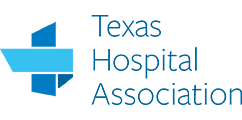Cedar Crest Hospital & Residential Treatment Center helps individuals who are struggling with ADHD find long-term recovery. Located in Belton, TX, Cedar Crest is the leader in mental health care.
Understanding ADHD
Learn about Attention-deficit hyperactivity disorder (ADHD)
Attention-deficit hyperactivity disorder (ADHD) is one of the most commonly diagnosed mental health disorders of childhood. Previously, it was thought that ADHD was a childhood disorder that disappeared as one got older, however, new research shows that most children diagnosed with ADHD will have some, if not all, of the same ADHD symptoms in adulthood. The key characteristics for both childhood and adult ADHD include difficulty staying focused, challenges paying attention, hyperactivity, distractibility, impulsiveness, restlessness, and the presence of emotional difficulties. These symptoms can make it difficult for children to succeed in school, for adults to be productive at work, and leads to challenges for children and adults alike in all other areas of their lives.
While there is currently no cure for this disorder, treatment can relieve many of the symptoms and make it possible for individuals to lead successful, productive lives. Currently treatments are aimed at reducing symptoms and improving overall functioning. Treatments such as medication, psychotherapy, education, and training are all effective forms of treatment that work best when combined. Although proper diagnosis of ADHD during childhood gives individuals more time to learn about and manage their ADHD, diagnosis in adulthood requires the same education, support, and treatment to manage symptoms.
Statistics
ADHD statistics
Attention-deficit hyperactivity disorder is a very common behavioral disorder that affects about 3% to 10% of school-aged children; an estimated 60% of those children with continue to have symptoms that affect their functioning as adults. ADHD affects boys 3 times as often as girls in childhood, but the ratio seems to even out by adulthood. The cause for this is not known. In a classroom of 30-35 students, it’s likely that at least two children will have ADHD. Prevalence rates for ADHD in adults are not as well known, but it is believed that about 4% to 5% of adults have ADHD.
Causes and Risk Factors
Causes and risk factors for ADHD
There has been a lot of research dedicated to understanding the causes for ADHD and as of today, there is no known single cause; it appears that a combination of risk factors work together to cause this disorder. The complex array of causes for ADHD include:
Genetic: Heredity is the most common cause of ADHD. It’s clear that ADHD runs in families, which suggests that there is a genetic component for the disorder. Individuals who have a first-degree relative, such as a parent or sibling, who has ADHD are at a far higher risk for developing the disorder themselves. However, no specific gene has been identified as the cause.
Physical: Current research indicates that the frontal lobe, basal ganglia, caudate nucleus, cerebellum, and many other areas of the brain play a significant role in ADHD as all are involved in the process that regulates behavior. Problems in these areas of the brain can be one of the causes for an individual to be unable to inhibit his or her behavior, have memory problems, issues with self-regulation, motor control, and emotional regulation.
Environmental: Factors such as chaotic home environment may play a small role in the development of ADHD.
Risk factors:
- Having a mother who used alcohol or tobacco during pregnancy
- Lead exposure
- Injury to the brain
- Being a boy
Signs and Symptoms
Signs and symptoms of ADHD
While the symptoms tend to be similar in childhood and adult ADHD, they present very differently. Additionally, every individual with ADHD has a unique set of symptoms. The symptoms of ADHD are broken down into different categories and may include some of the following:
Inattentive Symptoms of ADHD: Those who have ADHD have an extremely difficult time paying attention, staying on task, and focusing. Some of the inattentive symptoms associated with ADHD include:
Adults:
- Poor organization skills
- Zoning out without realizing it, even in middle of sentence
- Easily distracted
- Trouble completing tasks
- Tendency to overlook details, leading to errors or incomplete work
- Poor listening skills
- Chronically late
- Tendency to procrastinate
- Trouble starting and finishing projects
- Frequently forgetting appointments, commitments, and deadlines
- Appears not to listen when spoken to
- Frequently loses or misplaces things
Children:
- Doesn’t pay attention to details
- Difficulty remembering things and following instructions
- Frequently loses or misplaces homework or other items
- Appears to not be listening when spoken to
- Trouble staying focused
- Trouble finishing projects
Hyperactivity Symptoms of ADHD: Hyperactivity is probably the most noted symptom of ADHD because individuals with this disorder have a hard time sitting still and tend to always be on the go. Other symptoms include:
Adults:
- Easily bored
- Engaging in more risk taking behavior
- Trouble sitting still
- Constant craving for attention
- Racing thoughts
- Excessive talking
- Trying to do a million things at once
Children:
- Fidgets and squirms while trying to sit still
- Often leaves seat in situations where one is expected to sit still
- Talks constantly
- Often climbs on things or runs around inappropriately
- Quick temper
- Difficulty playing quietly
Impulsive Symptoms of ADHD: The impulsive symptoms of ADHD often lead to problems with self-control, self-censoring, and other disruptive behaviors.
Adults:
- Poor self-control
- Often talks over others or interrupts them
- Blurts out thoughts that are rude or inappropriate
- Addictive tendencies
- Reckless, spontaneous behavior
- Trouble behaving socially appropriate
Children:
- Blurts out answers in class without waiting to be called on
- Acts without thinking
- Says wrong thing at wrong time
- Intrudes on others conversations or games
- Can’t wait their turn in line
- Guesses rather than taking time to figure out answer
Emotional difficulties: Many children and adults with ADHD have a hard time managing their feelings. The daily struggles with their disorder’s symptoms causes many individuals to become frustrated, embarrassed, and lose their self-confidence.
Adults:
- Hopelessness
- Easily frustrated or irritated
- Violent mood swings
- Explosive tempers
- Overly sensitive to criticism
- Sense of insecurity
- Sense of underachievement
- Easily stressed out
Children:
- Temper tantrums
- Angry outbursts
- Low self-esteem
Effects
Effects of ADHD
Without proper treatment the effects of ADHD can cause serious disruptions in all areas of an individual’s life. However, with proper treatment this disorder can be managed. The long-term effects of ADHD can include:
Adults:
- Compulsive eating
- Substance abuse or addiction
- Large amount of debt
- Impulsive spending
- Difficulty holding down a job
- Lack of meaningful relationships
- Depression
- Family problems
- Financial difficulty
Children:
- Social isolation
- Poor performance at work or school
- Inability to form lasting bonds with others
- Experimentation with drugs or alcohol
- Depression
- Family problems
- Thoughts of suicide
Co-Occurring Disorders
ADHD and co-occurring disorders
Those diagnosed with ADHD often times are struggling with another mental health disorder. Some of the co-occurring disorders with ADHD may include:
- Anxiety disorders
- Depression
- Obsessive-compulsive disorder
- Tics
- Tourette syndrome
- Oppositional defiant disorder (in children)
- Conduct disorder (in children)
- Disruptive behavioral disorder (in children)
- Learning disabilities
- Speech or hearing problems

















